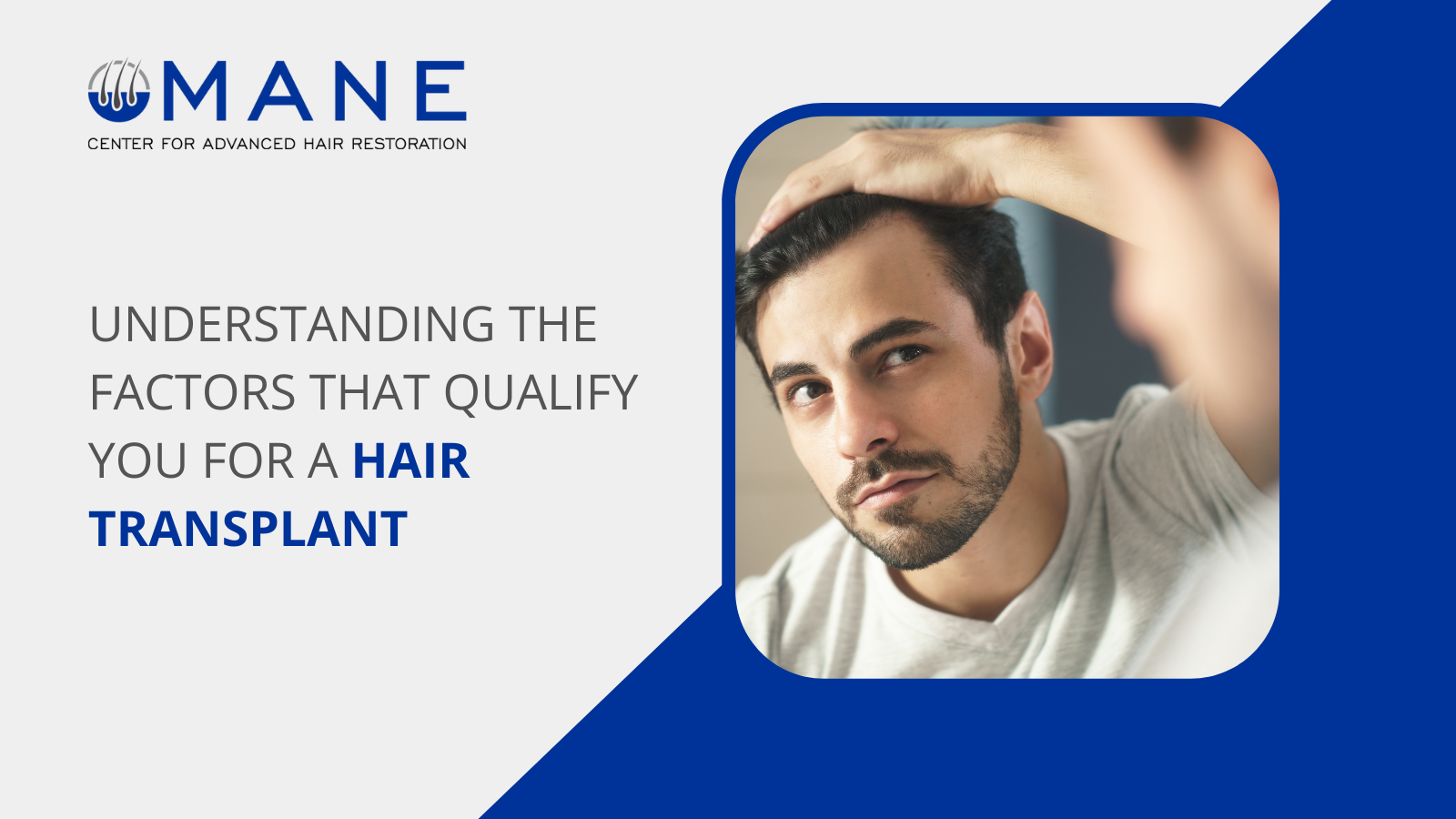Are you concerned about your receding hairline and are looking for a permanent solution to your hair loss? If your answer is yes, consider getting a hair transplant. A hair transplant procedure resolves hair thinning and baldness, giving you long-lasting, natural-looking results. However, having hair loss does not mean that you are eligible for the procedure. Therefore, before getting a transplant, patients need to know how it works and if they’re eligible for the procedure.
Reasons for Baldness/Hair Loss
The most common causes of hair loss are:
- Hereditary Hair Loss/ Androgenic Alopecia - Develops in both men and women due to inherited genes, which cause hair follicles to shrink and stop growing hair.
- Alopecia Areata - A condition that develops when your immune system attacks hair follicles, causing hair loss in your ears, nose, and scalp.
- Poor Hair Care - Regularly coloring or perming your hair can damage it, leading to hair loss.
- Scalp Infection - Causes scaly and inflamed areas on your scalp, leading to baldness.
- Scarring Alopecia - Develops when hair follicles are destroyed by inflammation. As a result, the dead hair follicles cannot grow hair.
- Thyroid Disease - You may experience thinning hair if you have a thyroid problem.
- Childbirth, Illness, or Stress - Recovering from an illness, getting operated on, childbirth or stress can cause hair loss.
- Scalp Psoriasis - This is a common skin-related disorder resulting in raised, reddish, and scaly patches that lead to hair loss.
How Do Hair Transplants Treat Baldness?
A hair transplant is done by taking hair follicles from the back of your head and transferring them to the bald spot. The
two popular hair transplant methods are:
Follicular Unit Transplantation (FUT)
Your surgeon will remove a long strip of scalp from the donor area (thicker parts of the scalp) using a scalpel and separate it into as many as 2000 smaller fragments (grafts). Then, they will make several small holes on the recipient’s scalp using a blade or needle to transplant these grafts. The surgical sites are then covered with bandages.
Follicular Unit Extraction (FUE)
This is a minimally invasive procedure that does not cause damage/scars to the scalp skin. Your surgeon will shave off the hair from the donor area (back of your head) and make several small holes on the scalp to extract hair follicles using a microneedle. Then, they will make small incisions on the recipient area to transplant the extracted hair follicles and cover the surgical site with bandages.
Your surgeon will recommend either of these
hair restoration procedures depending on the size of your bald spot, quality and quantity of hair at the donor site, and hair loss type.
Eligible Criteria for a Hair Transplant
Hair Characteristics
The characteristics of your hair will determine whether you are eligible for a hair transplant, such as:
- Hair Color – You must have similar hair and skin color – e.g., light skin and light hair or dark skin and dark hair.
- Hair Texture – Those with curly or wavy hair can expect better results.
- Hair Density –You must have good hair density (volume) around the donor area.
- Scalp Flexibility – Those with high scalp laxity (loose scalp) are good candidates.
- Hair Thickness – Having thick hair ensures better results.
Other Eligibility Factors
Other eligible candidates for a hair transplant are those with:
- Hair thinning or receding hairlines
- Premature baldness
- Sufficient hair follicles on the donor sites
- Androgenic alopecia (hereditary male pattern baldness)
Factors That Might Disqualify You
You will not be eligible for a hair transplant if you:
- Do not have sufficient hair at the donor sites
- Have stress-related conditions that cause hair loss
- Are completely bald or at advanced stages of male pattern baldness
- Have baldness due to alopecia areata, an autoimmune disorder
- Are below 22 years of age
- Have lost your hair due to radiation therapies
If you are looking for a
hair transplant in Maryland, contact our experts at the Mane Center for Advanced Hair Restoration. We have highly experienced
professional hair surgeons who will help you achieve desired
hair restoration results.


